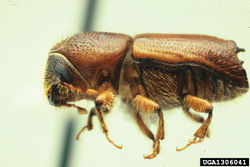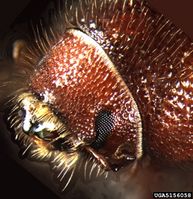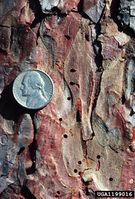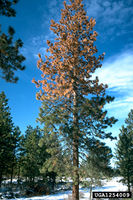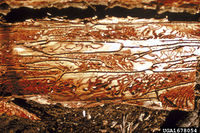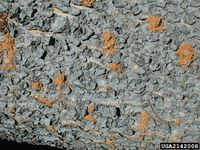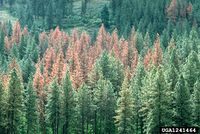Difference between revisions of "Ips pini"
From Pestinfo-Wiki
| Line 18: | Line 18: | ||
File:IPMimage5208087.jpg|adult | File:IPMimage5208087.jpg|adult | ||
File:IPMimage5156058.jpg|details of head | File:IPMimage5156058.jpg|details of head | ||
| + | File:IPMimage1199016.jpg|exit holes on red pine (''Pinus resinosa'') | ||
| + | File:IPMimage1254009.jpg|top kill on ponderosa pine | ||
File:IPMimage1678054.jpg|galleries | File:IPMimage1678054.jpg|galleries | ||
File:IPMimage2142008.jpg|signs of attack | File:IPMimage2142008.jpg|signs of attack | ||
| − | |||
| − | |||
File:IPMimage1241464.jpg|infestation | File:IPMimage1241464.jpg|infestation | ||
</gallery> | </gallery> | ||
[[Category:Ips (genus)]] | [[Category:Ips (genus)]] | ||
Revision as of 22:29, 14 November 2011
Taxonomic position
|
|---|
| Literature database |
|---|
| 127 articles sorted by: |
| • year (recent ones first) |
| • research topics |
| • countries/regions |
| • list of natural enemies |
Ips pini (Say) (pine engraver)
normally do not attack healthy trees and more often target pine trees previously damaged by logging, windthrow, fire, lightning, ice or other causes. These damaged trees can then trigger infestations.
For more details see the respective page in BugwoodWiki.
| Vernacular names | |
|---|---|
| • English: | pine engraver |
| • Français: | scolyte du pin |
The literature database currently contains 127 publications for Ips pini. (See box above/on left.)
- Other images of Ips pini (IPM Images - click to enlarge)
